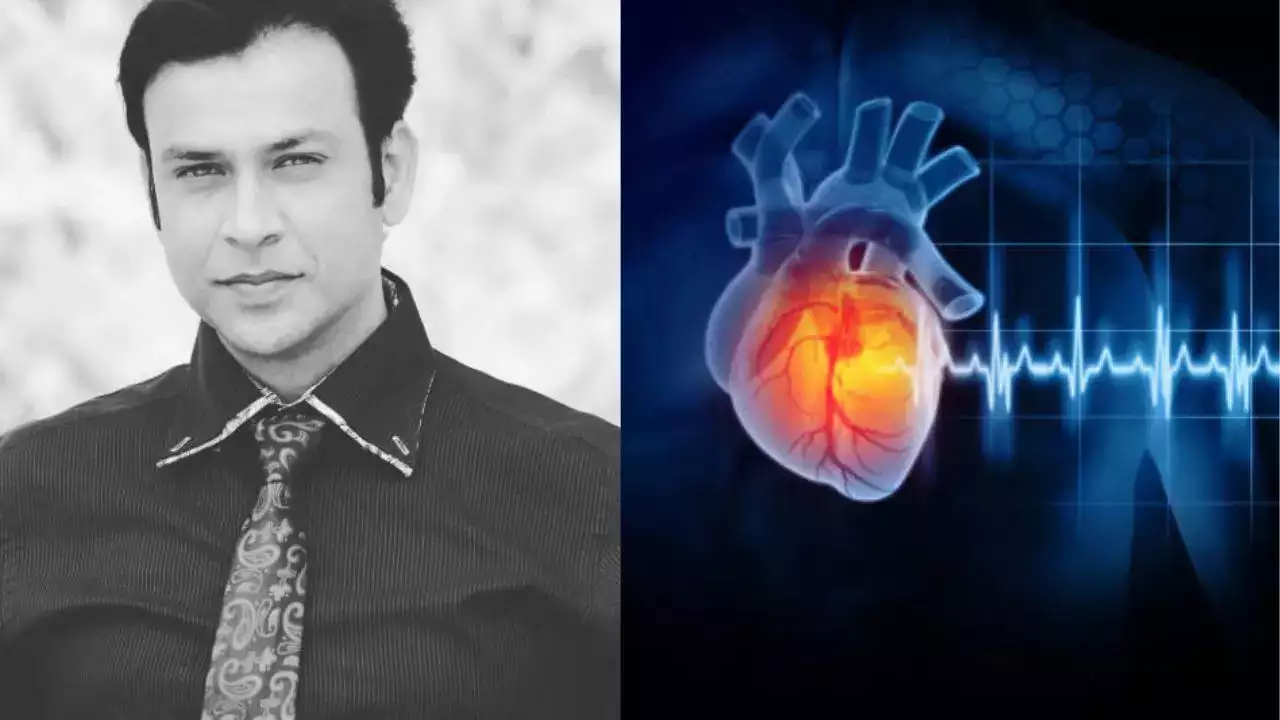
Yogesh was reportedly discovered lifeless in his flat in Mumbai by his colleagues
Television actor Yogesh Mahajan passed away due to cardiac arrest at the age of 44. Known for hit shows like Adaalat, Jai Shri Krishna, Chakravartin Ashoka Samrat, and Devon Ke Dev Mahadev, among others, Yogesh was reportedly discovered lifeless in his flat in Mumbai by his colleagues who went to check on him after he did not show up for a shoot.
According to media reports, crew members broke open the door to find him unresponsive.
What is a cardiac arrest?
Experts say cardiac arrest happens when your heart stops beating or beats so fast that it is not able to pump blood. During cardiac arrest, people typically collapse and become unresponsive. Doctors say since symptoms start without warning, that is why it is also known as sudden cardiac arrest.
This life-threatening condition can become fatal if you do not get immediate treatment. During cardiac arrest, since your heart stops pumping blood, it puts your organs and whole body at risk of death because they must constantly receive oxygen.
Right before a cardiac arrest, before you faint, you may have other signs that include chest pain, nausea, vomiting, and breathlessness.
What causes a cardiac arrest?
According to doctors, just before a cardiac arrest, abnormal and rapid impulses abruptly override the normal electrical impulses that start your heartbeat. These abnormal heart rhythms, also known as arrhythmias, cause most sudden cardiac arrests.
The most common life-threatening arrhythmia is ventricular fibrillation—an erratic, disorganised firing of impulses from your heart’s ventricles. When this happens, your heart cannot pump blood.
How is a cardiac arrest different from a heart attack?
A heart attack happens when one of your coronary arteries becomes blocked. The heart muscle gets robbed of its vital blood supply and, if left untreated, will begin to die because it is not getting enough oxygen.
However, in a cardiac arrest, your heart stops pumping blood around the body and you may stop breathing normally.
Most heart attacks are not associated with cardiac arrests
Doctors say while heart attacks can cause cardiac arrest, most do not. The blockage that causes a heart attack can be sudden, but the narrowing of arteries in the heart leading to the blockage typically occurs over a more extended period of time. High blood pressure, diabetes, a sedentary lifestyle, and diet choices increase the risk of narrowing the blood vessels.
As the narrowing becomes severe, this limited blood flow causes chest pain when people exert themselves. A person may be able to go about their daily life without any pain or discomfort, but when they exert themselves, they may experience chest pain caused by that restricted blood flow. Typically, once the exertion stops, the pain resolves.
If the pain does not go away, it could be a sign of a heart attack, and one should call for an ambulance immediately.
Heart attacks may have other symptoms too that are not just chest pain. Some patients describe the symptoms as pressure; others will say pain, throbbing, or stabbing. It is most commonly felt on the left side of the chest but can also feel like the pain is going into the neck and the left arm. Sometimes people will describe tingling or pain in the arm, and other times it will be throat or jaw pain. They may also sometimes experience trouble breathing.
Get Latest News Live on Times Now along with Breaking News and Top Headlines from Health and around the world.
